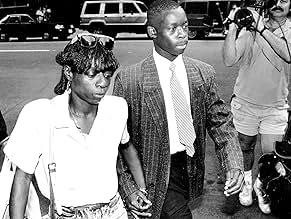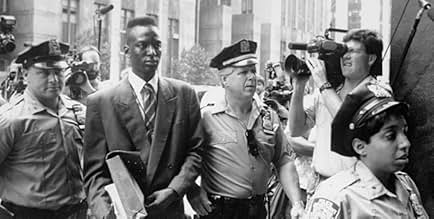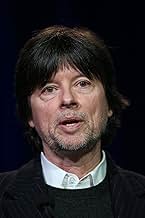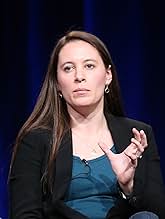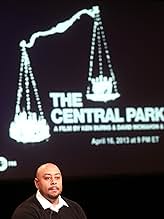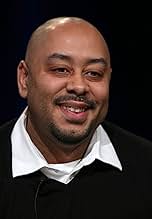IMDb RATING
7.7/10
8.2K
YOUR RATING
A documentary that examines the 1989 case of five black and Latino teenagers who were convicted of raping a white woman in Central Park. After having spent between 6 and 13 years each in pri... Read allA documentary that examines the 1989 case of five black and Latino teenagers who were convicted of raping a white woman in Central Park. After having spent between 6 and 13 years each in prison, a serial rapist confessed to the crime.A documentary that examines the 1989 case of five black and Latino teenagers who were convicted of raping a white woman in Central Park. After having spent between 6 and 13 years each in prison, a serial rapist confessed to the crime.
- Directors
- Writers
- Stars
- Awards
- 10 wins & 18 nominations total
Kharey Wise
- Self - Wrongfully Convicted
- (as Korey Wise)
Matias Reyes
- Self - Confessed Rapist
- (archive footage)
- (archive sound)
Calvin O. Butts III
- Self - Reverend
- (as Rev. Calvin Butts)
- Directors
- Writers
- All cast & crew
- Production, box office & more at IMDbPro
Featured reviews
I was leery of this despite a friend's recommendation. I didn't live in NY at the time and basically ignored the news reports. So, this film I found fascinating, should be required for all law students and certainly worthwhile for everyone else. It could have been 5 or 10 minutes shorter but frankly I feel that way about most films. I had a bit of confusion sorting out the Five and their adult selves. (One of them changed to or from a Muslim-sounding name, I think). Also it's a very interesting portrait of NYC circa 1990. I'd like to know more about why the civil case is still "unresolved". The tone of the film is indignant but, more importantly, it is truth-seeking. That's why it's so compelling: we viewers want to find out what happened.
Sarah Burns (Ken Burns' daughter) and her husband, David McMahon along with Ken Burns have managed to create a documentary SO fantastic, SO incredibly moving, SO impassioned, and SO painful to those of us who want to believe in the goodness of man, that I implore you to see it! And once you have, I hope you will learn more about the continued stonewalling by the New York City Justice System to give these 5 fine gentlemen (and I don't use the word "gentlemen" lightly) the justice and apology they so deserve... and follow up with a letter writing campaign. Here's the information you will need: http://wbls.com/A-Call-for-Justice-Central-Park-Jogger-5/14823124 (I have no connection with this website, I'm just someone who was lucky enough to see this documentary at a local theater and wants to do SOMETHING to help!) And to the 5 men: Antron McCray, Kevin Richardson, Yusef Salaam, Raymond Santana and Kharey Wise... you are what we should all aspire to... loving, honest, and with a strength of character and strong moral compass that was (and sadly still is) so sadly missing in all those who did you wrong.
I think this documentary was done well overall. It captures an era in US history when New York City and many US cities were in rapid decline due to the economy, drugs, crime, white flight, etc
What happened with the Central Park Five was the culmination of many factors that ultimately led to their conviction then exoneration. To put things in context, in 1989 NYC was in the midst of an unprecedented crime wave. In 1989 there were 2,244 murders and 5,479 rapes in NYC. In 1989 and even to this day, crime statistics show 90% of all crime in New York is perpetrated by blacks and other minorities, including the criminal that was ultimately convicted of brutally raping and almost beating to death the female white jogger. At the time, Central Park seemed like a piece of calm and safety amid the crime and chaos of NY. The night of the incident, when police got reports of a gang of colored teenagers beating and terrorizing people in the park, they quickly picked up these five kids who were in the area. Under great public pressure to get the sociopath(s) responsible for this heinous crime, the police threw out their code of ethics and justice and unbelievably contrived and then cajoled false confessions out of five naive and susceptible teens and their unwitting parents. Although lacking any physical evidence and with conflicting stories from the teens, with their own contrived video taped confessions, the five teens (scapegoats) were convicted and sentenced to prison. Ultimately, another minority in prison for murder confessed to the crime and the 5 teens were vindicated as being innocent. What this documentary shows is many parts of a society in decay
from the break down of the justice system, the manipulation and railroading of innocent teens by police, the media hype that overlooked the facts, the outrageous level of crime perpetrated by minorities, overzealous prosecutors who want the feather in their cap despite the teens innocence, etc
etc
A good, insightful documentary.
Korey,Ray Santana (and Ray's father) and the other Five are the stars of this documentary really. Their humanity and suffering is etched in their faces. The story of five innocent boys (14-16) railroaded into confessing to a crime they didn't commit by police and prosecutors that just wanted feathers in their cap must touch the heart of any parent of a teenage boy. That they are ever exonerated comes as a miracle--and has nothing to do with the justice system. Ray's father says it is literally the hand of God, and honestly, this is one of those things that makes you wonder! The best thing about the movie is the men themselves. The trouble is that for Mr. Burns it is all about the racial fault line between black and white. Does he think we don't have any dividing lines up here in NH? Has he noticed the trailer parks hidden behind pine trees? All white people, definitely divided. I lived in NYC in 1990, and there was another headline blaring then about a white mob killing an innocent black man. The prosecutors in that case were also falling all over themselves making political hay. A person reading the headlines in both cases (Bensonhurst and Central Park 5) would have their blood boiling within 3 seconds. Meanwhile, more and more people in NYC spoke Spanish, Hindi, Chinese. We actually all took the subways together and were often courteous to one another, trapped like sardines, while holding our tabloids which screamed headlines that suggested, "stick to your own kind." It was less and less about black and white, but the tabloids never got that, and Mr. Burns doesn't either. He's sort of a reverse tabloid. But Korey and Ray and Antron and Kevin and Yussef are extraordinary people, and I thank Mr. Burns and his daughter Sara for permitting us to know their story. And this is more complicated than anything Mr. Burns has made before, so everyone should see it.
I remember the skeptical tone of one news report I read in 2002, when the Central Park Five ("CP5") were exonerated due to Matias Reyes's confession to the 1989 assault and rape of Trisha Meili. The majority of people (including myself) who gave the story a cursory glance seemed doubtful about a serial rapist who was already serving a life sentence--i.e., with nothing left to lose by making a false confession--meeting one of the CP5 by chance in prison and taking the blame in order to clear the names of several young men who must have been properly convicted some years earlier. "What did Reyes get in return?" many of us wondered, ignoring the facts that all of the CP5 had already completed their sentences for the rape and near-murder of Meili--though one of them was incarcerated for a later drug trafficking offense and just happened to meet Reyes in prison--and that Reyes's DNA matched the profile found at the crime scene.
THE CENTRAL PARK FIVE is very important in showing the other side of the story. It definitely has its slant, as any documentary will, but it makes a strong argument for the basic fact that five teenaged boys were convicted solely because of coerced and contradictory confessions to the crime after hours of being interrogated and played off against one another with a complete disregard for the lack of direct evidence against them. It clearly shows how this can and does happen far more often than many of us want to think. It's also very revealing of how dangerous public emotion and outrage, regardless of its focus, can be.
Unfortunately, the NYPD, the prosecutors in the case, and everyone else responsible for the convictions declined to speak to Directors Ken and Sarah Burns, which is very telling but also limits the scope of the film. THE CENTRAL PARK FIVE is dominated by interviews with the CP5 and their relatives, obviously a crucial ingredient, but it becomes repetitive. There are, however, important comments from then-Mayor Ed Koch, who was all for conviction and serious punishment of the CP5 in 1989 but has now apparently changed his mind. The brief input by NYC historian Craig Steven Wilder and several others also adds a great deal.
One of the strongest aspects of THE CENTRAL PARK FIVE is the brief sociological perspective of New York City's racially polarized, have/have-not environment during the 1970s and 80s. Not only is it elucidating in its own right, it also provides background and something in the way of explanation for the wrongful conviction of the CP5.
Some of the more negative reviews have criticized THE CENTRAL PARK FIVE simply for being "boring," and at the risk of sounding crass, I see what they mean. While this is an important miscarriage of justice that should not be ignored, the repetitiveness and narrow scope of the film will inevitably limit its mass appeal. Anyone with a serious interest in this case and wrongful convictions in general, however, will probably find its two-hour length well-worth sitting through.
More analysis of the details that led to the wrongful convictions would have been helpful, e.g., the term "wilding." One of the CP5 confessed to police that he and a number of others were "wilding" in Central Park on the night of the crime. The term "wilding" is roughly equivalent to "raising hell," the usual term-of-choice when I was a kid in the late '70s/early '80s. "Raising hell" could, of course, refer to anything from driving fast, drinking beer, and talking loudly and irreverently (as we meant it) to violent felonies. More discussion of how misinterpretations of the loose term "wilding" were a critical factor in the conviction would have added some depth to this documentary.
THE CENTRAL PARK FIVE is very important in showing the other side of the story. It definitely has its slant, as any documentary will, but it makes a strong argument for the basic fact that five teenaged boys were convicted solely because of coerced and contradictory confessions to the crime after hours of being interrogated and played off against one another with a complete disregard for the lack of direct evidence against them. It clearly shows how this can and does happen far more often than many of us want to think. It's also very revealing of how dangerous public emotion and outrage, regardless of its focus, can be.
Unfortunately, the NYPD, the prosecutors in the case, and everyone else responsible for the convictions declined to speak to Directors Ken and Sarah Burns, which is very telling but also limits the scope of the film. THE CENTRAL PARK FIVE is dominated by interviews with the CP5 and their relatives, obviously a crucial ingredient, but it becomes repetitive. There are, however, important comments from then-Mayor Ed Koch, who was all for conviction and serious punishment of the CP5 in 1989 but has now apparently changed his mind. The brief input by NYC historian Craig Steven Wilder and several others also adds a great deal.
One of the strongest aspects of THE CENTRAL PARK FIVE is the brief sociological perspective of New York City's racially polarized, have/have-not environment during the 1970s and 80s. Not only is it elucidating in its own right, it also provides background and something in the way of explanation for the wrongful conviction of the CP5.
Some of the more negative reviews have criticized THE CENTRAL PARK FIVE simply for being "boring," and at the risk of sounding crass, I see what they mean. While this is an important miscarriage of justice that should not be ignored, the repetitiveness and narrow scope of the film will inevitably limit its mass appeal. Anyone with a serious interest in this case and wrongful convictions in general, however, will probably find its two-hour length well-worth sitting through.
More analysis of the details that led to the wrongful convictions would have been helpful, e.g., the term "wilding." One of the CP5 confessed to police that he and a number of others were "wilding" in Central Park on the night of the crime. The term "wilding" is roughly equivalent to "raising hell," the usual term-of-choice when I was a kid in the late '70s/early '80s. "Raising hell" could, of course, refer to anything from driving fast, drinking beer, and talking loudly and irreverently (as we meant it) to violent felonies. More discussion of how misinterpretations of the loose term "wilding" were a critical factor in the conviction would have added some depth to this documentary.
Did you know
- Quotes
[last lines]
Antron McCray: The truth came out. Truth came out.
- ConnectionsFeatured in Ken Burns: America's Storyteller (2017)
- SoundtracksYo Slippin
Written by KRS-One
Published by Universal Music - Z Tunes LLC
Performed by Boogie Down Productions
Courtesy of RCA Records
By arrangement with Sony Music Licensing
- How long is The Central Park Five?Powered by Alexa
Details
- Release date
- Country of origin
- Language
- Also known as
- Los cinco de Central Park
- Filming locations
- Production companies
- See more company credits at IMDbPro
Box office
- Gross US & Canada
- $325,653
- Opening weekend US & Canada
- $30,570
- Nov 25, 2012
- Gross worldwide
- $325,653
- Runtime
- 1h 59m(119 min)
- Color
- Sound mix
- Aspect ratio
- 1.78 : 1
Contribute to this page
Suggest an edit or add missing content



